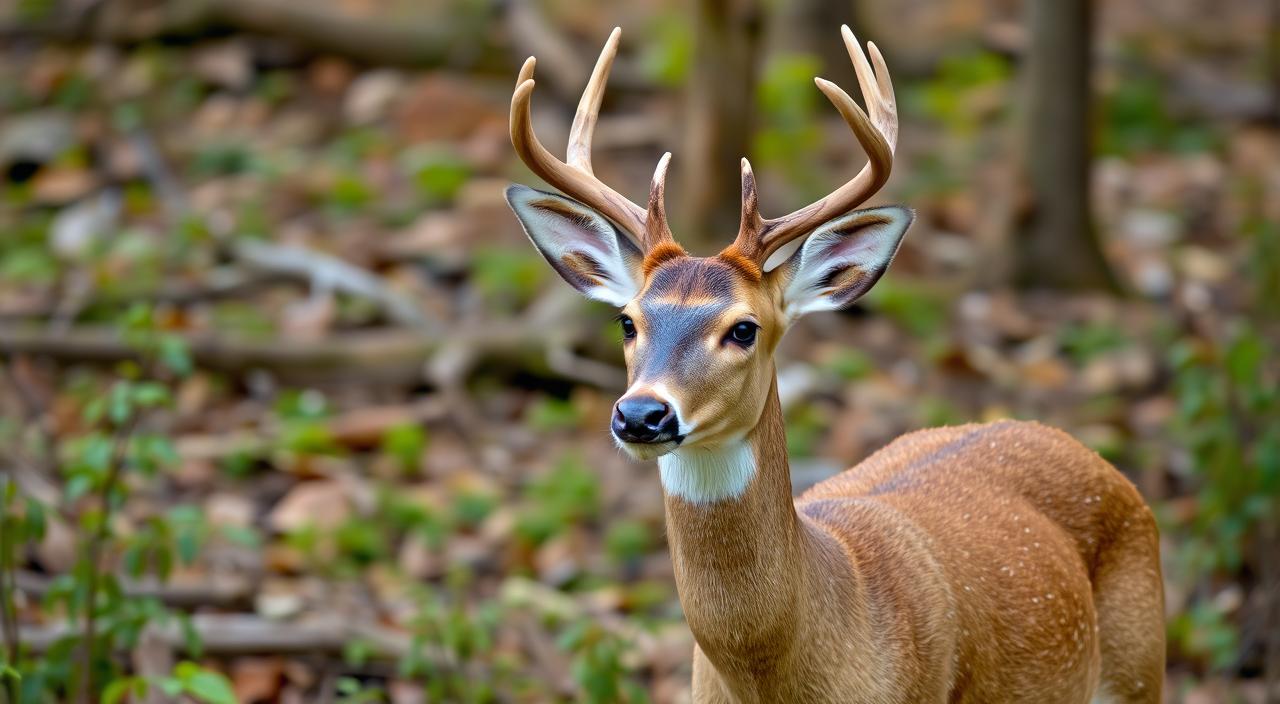White deer hunting is a thrilling adventure. But, it’s key to know the legal rules. Laws about hunting change by state. It’s important to know these laws for a safe hunt.
Knowing the rules for hunting white deer is crucial. These rules cover hunting laws, permits, and licenses. Hunters need the right permits and licenses before they can hunt white deer. These rules help protect and manage white deer populations for their future.
Key Takeaways
- White deer hunting is subject to specific legal regulations
- Hunters must comply with hunting laws and regulations to avoid penalties
- Understanding the legal regulations for white deer hunting is vital for a safe and legal hunting experience
- White deer hunting regulations vary by state
- Hunters must obtain the necessary permits and licenses before engaging in white deer hunting
- Legal regulations for white deer hunting are in place to conserve and manage white deer populations
Understanding White Deer Classifications and Protection Status
White deer are rare and unique, with different classifications and protection statuses. The white deer classification helps us understand the various types, like albino deer. These are often protected by law. In many places, white deer have a protected status, so hunters must know and respect these animals.
Albino deer lack melanin in their skin, hair, and eyes. This rare condition happens in less than 1% of deer. Other white deer might have leucism, which reduces melanin but doesn’t eliminate it.
Here are some key facts about white deer classifications and protection statuses:
- Albino deer are protected in many states and countries because of their rare condition.
- White deer with leucism are not always protected, but they are still unique and valuable.
- The protected status of white deer varies by region, with some areas having stricter laws than others.
It’s important for hunters and conservationists to understand the different white deer classification and protected status. By recognizing and respecting these protected species, we can help preserve the beauty and diversity of deer populations.
| Region | Protected Status | Notes |
|---|---|---|
| North America | Varies by state | Some states have strict laws protecting albino deer, while others do not. |
| Europe | Protected in some countries | Countries such as the UK and Germany have laws protecting white deer and other rare species. |
Current Legal Regulations for White Deer Hunting
White deer hunting rules change from state to state and country to country. Hunting laws are made to protect these rare animals. In the U.S., the federal government and states have their own rules. It’s important for hunters to know these rules to avoid fines and help conservation.
Some key aspects of white deer hunting regulations include:
- Permits and licenses: Hunters need special permits and licenses to hunt white deer. These are limited to prevent too much hunting.
- Seasonal restrictions: The hunting season for white deer is shorter than for other deer. It’s closed in some areas to help the population grow.
- Bag limits: Hunters can only take one white deer per season. They must also report their catch to wildlife authorities.
Hunters should know the white deer hunting regulations in their area. Hunting laws can be very different. By following these rules, hunters help keep white deer populations healthy for the future.
For more information on white deer hunting regulations, hunters can talk to local wildlife authorities. They can also visit their website for the latest on hunting laws and conservation.
| State | White Deer Hunting Regulations |
|---|---|
| Wisconsin | Permit required, seasonal restrictions apply |
| Michigan | Limited permits available, bag limit of one deer per season |
| Minnesota | Hunting season closed in certain areas, permit required |
Federal Hunting License Requirements
To hunt white deer, getting a federal hunting license is key. You need to apply, provide documents, and pay fees. You must be a U.S. citizen, have a hunter education certificate, and meet age and residency rules.
The application process for a federal hunting license includes a few steps:
- Download and complete the application form from the relevant website
- Attach required documents, such as proof of citizenship and hunter education certification
- Submit the application and pay the required fee
The cost and renewal details for a federal hunting license change by state and license type. Hunters should check with the relevant authorities for the latest on federal hunting license needs. This includes application steps, qualification rules, and cost and renewal info.
Aside from meeting the criteria, hunters must follow federal rules for white deer hunting. This means sticking to bag limits, hunting seasons, and other rules. These help protect and manage white deer populations.
State-Specific Hunting Regulations and Variations
When hunting white deer, state-specific regulations are key. They ensure hunters know the laws in each state. These rules can change a lot, and hunters must know them to avoid trouble.
In the U.S., white deer hunting rules are set by each state’s wildlife agency. Hunters need to learn about bag limits, season dates, and licenses. Some states have extra rules, like wearing blaze orange or hunting at certain times.
To hunt well and safely, it’s vital to know the hunting variations in each state. This means learning about the local area, weather, and animal habits. By doing this, hunters can protect the environment and respect the animals they hunt. They should also follow state-specific regulations and hunt responsibly.
- Research state-specific regulations before heading out on a hunt
- Familiarize yourself with local terrain and wildlife patterns
- Follow all rules and regulations to ensure a safe and successful hunt
By understanding and respecting state-specific regulations and hunting variations, hunters can help protect white deer. They also promote sustainable white deer hunting practices.
Seasonal Restrictions and Hunting Zones
It’s key for white deer hunters to know the seasonal rules and hunting zones. This ensures they hunt where and when they should. The zones help keep the deer population and the environment in balance. Hunters need to learn the seasonal restrictions in their area, like when the hunting season starts and ends.
The hunting zones have their own rules and areas. These rules stop overhunting and protect white deer. Hunters must get the right permits and follow the bag limits to hunt the right number of deer.
- Designated hunting areas, which are clearly marked and defined
- Time and date restrictions, which dictate when and how long hunters can hunt
- Bag limits and tags, which regulate the number of deer that can be hunted
Following these rules and respecting the seasonal restrictions and hunting zones helps protect white deer. It also makes hunting more sustainable.
Required Equipment and Documentation
To have a successful and legal white deer hunting experience, you need the right hunting equipment and documentation. This includes a valid hunting license, permits, and stamps. You also need gear like rifles, bows, and tree stands.
A list of required hunting equipment includes:
- Rifle or bow
- Tree stand or blind
- Camo clothing and gear
- Optics, such as binoculars and scopes
Along with the right hunting equipment, you must also have the correct documentation. This includes a valid hunting license and any needed permits or stamps. It’s important to make sure all documentation is current and valid for the white deer hunting season and location.
With the right hunting equipment and documentation, hunters can have a safe and fun white deer hunting experience. They will also follow all laws and regulations.
Conservation Efforts and Population Management
Keeping white deer populations healthy is key. This means using population management and breeding programs along with protecting their habitats. These steps help ensure white deer can thrive for years to come.
Some important ways to help include:
- Starting breeding programs to grow numbers and mix up their genes
- Keeping and fixing their homes to make sure they’re safe and healthy
- Watching how many there are and how they’re doing with population monitoring systems
These steps are vital for keeping a good balance between humans and white deer. By teaming up, we can make plans that really help these amazing animals.
By working on conservation efforts and population management, we can safeguard white deer for future generations. Supporting breeding programs and protecting their homes can really help these incredible creatures.
Penalties and Legal Consequences for Violations
Breaking white deer hunting rules can lead to harsh penalties and legal consequences. Hunters must know how serious it is to not follow the rules. They could face big fines or even jail time.
For example, breaking federal rules can cost up to $100,000 and get you a year in jail.
State penalties can be just as tough. Hunters might get fined, lose their license, or even face criminal charges. To stay out of trouble, hunters need to follow all rules and report as needed. For more info, check out experienced hunting guides websites. They offer tips for safe and successful hunting.
Hunters also need to report any deer they hunt and any issues that happen during the hunt. This helps them stay legal and ensures a good hunting experience.
Safety Protocols and Best Practices
When hunting white deer, safety is key. Hunters must keep themselves and others safe to avoid accidents. This ensures a positive hunting experience.
To stay safe, hunters should wear the right gear like orange vests and hats. They also need to know their surroundings well. Learning about tracking, stalking, and shooting is important too.
Here are some important safety tips for hunting white deer:
- Always wear appropriate gear, including orange vests and hats
- Be aware of your surroundings and know your target
- Follow established tracking, stalking, and shooting techniques
- Respect other hunters and the environment
By following these safety tips, hunters can reduce the risk of accidents. This way, they can enjoy a successful white deer hunting trip.
Ethical Considerations in White Deer Hunting
White deer hunting raises important ethical considerations. Hunters must think about how their actions affect white deer and the environment. They should also consider traditional beliefs and conservation ethics. This balance is key to responsible hunting.
To hunt white deer ethically, hunters need to follow some key principles:
- Respect for the animal and its habitat
- Minimizing harm to the environment and other species
- Compliance with laws and regulations
- Promoting conservation ethics and sustainable hunting practices
By focusing on ethical considerations and traditional beliefs, hunters can protect white deer. They also help keep a balance between humans and nature. This requires understanding conservation ethics and practicing responsible hunting.
| Principle | Description |
|---|---|
| Respect for the animal | Treating the animal with dignity and respect |
| Minimizing harm | Reducing the impact of hunting on the environment and other species |
| Compliance with laws | Adhering to laws and regulations governing white deer hunting |
Conclusion
As we wrap up this guide on white deer hunting laws, it’s clear that following these rules is key. It helps keep hunting safe and sustainable. Hunters need to know about white deer’s biology and legal protections.
They must also get the right hunting licenses and follow seasonal rules. It’s important to hunt in the right places and stay safe. Hunters should also respect the animals and the environment.
By following the laws, hunters help protect white deer. This is a team effort between hunters, wildlife agencies, and conservation groups. Together, we can keep the balance between enjoying nature and protecting it for the future.

